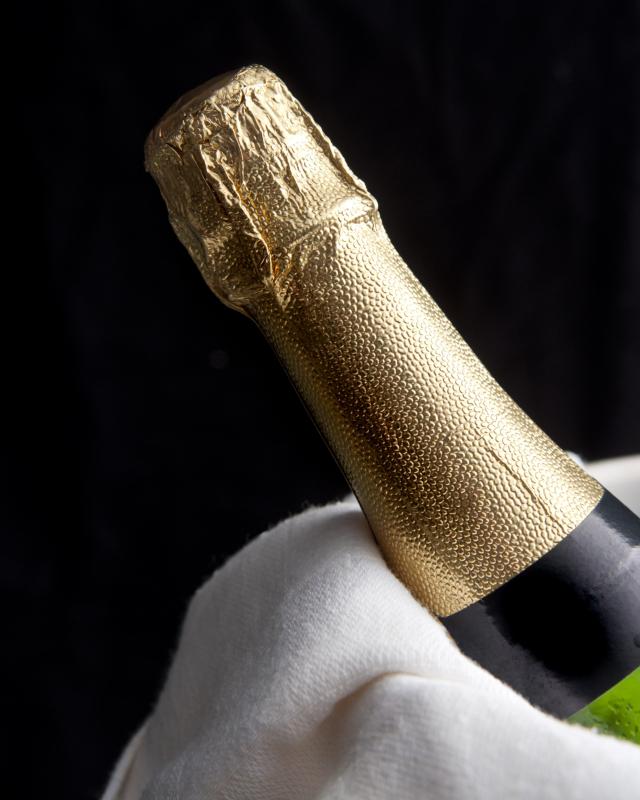At DelightedCooking, we're committed to delivering accurate, trustworthy information. Our expert-authored content is rigorously fact-checked and sourced from credible authorities. Discover how we uphold the highest standards in providing you with reliable knowledge.
What is the Difference Between Champagne and Sparkling Wine?
The difference between champagne and sparkling wine has been a topic of ferocious debate in the European Union. In fact, champagne is a specific type of sparkling wine, produced in a particular way, in a certain region of French known as Champagne. Due to concerns about the integrity of traditional French champagne, the European Union has given champagne a Protected Designation of Origin (PDO) label, which means that only sparkling wines which meet specific criteria can be labeled as “champagne” in Europe.
Sparkling wines are wines which contain bubbles of carbon dioxide. There are three ways to make a sparkling wine. In the traditional method, also known as the champagne method, the wine undergoes a secondary fermentation in the bottle, generating its own carbonation. Producers may also bottle wine before it is fully fermented, allowing the fermentation to finish in the bottle. Finally, sparkling wines can also be made by fully fermenting wine, and introducing carbon dioxide during the bottling process.

Sparkling wines have been made in Champagne since at least the 1700s, and the region has become rightfully famous for its sparkling wine. While champagne is most certainly a sparkling wine, all sparkling wines are not champagne. Champagne is produced with Pinot or chardonnay grapes using the champagne method of sparkling wine production, and many people feel that true champagne has a superior flavor to other sparkling wines. This is the key difference between champagne and sparkling wine, as “sparkling wine” can be made with a variety of grapes and any carbonation method.

Given the fame of wines from Champagne, many wine producers have attempted to capitalize on their wine production by labeling their sparkling wines as champagnes. This led to confusion about champagne and sparkling, and producers in Champagne felt that the quality and fame of their product was being diluted. As a result, they petitioned for a PDO label, outlining the methods that make champagne distinct, and their request was granted.

While the difference between champagne and sparkling wine might seem petty, there are a few key elements which distinguish champagne from other sparkling wines. The first is the method used to create carbonation in the bottle. Champagne is made using the traditional method, and this has a profound effect on the composition of the wine. If a wine labeled as “champagne” is made with another technique, it may not be as good, and it can be disappointing to a consumer who is expecting true champagne.

The origin of the grapes is also important, as the growing conditions of grapes influence the final product. Champagne and sparkling wine may both be carbonated wines, but the nature of the base wine is very important, and grapes from other regions will deliver a very different flavor. The way the wine is handled during crushing and primary fermentation is also unique to the Champagne region, while sparkling wine producers use a variety of handling techniques, and a generally more mechanized process.

PDO labels are not always respected outside the European Union. European products prepared for export must adhere to the PDO regulations, but wineries in other parts of the world do not need to follow PDO directives. This means that sparkling wines produced in other areas of the world may be labeled as “champagnes,” much to the frustration of vintners in Champagne.
AS FEATURED ON:
AS FEATURED ON:















Discussion Comments
Can anyone tell me if such a thing as non sparkling champagne has been made? I have been told I have a bottle.
Having been to the Champagne region I can testify that "true" champagne is completely different in texture and taste to most sparkling wines.
As the article states: true champagne is naturally carbonated and therefore has a softer, more delicate texture than artificially-fizzy wine.
Were it not for the hefty price tag and lack of room in my bag, I may have taken one home with me!
Post your comments